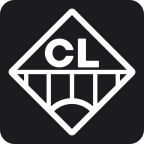As we all know, fiber laser has become one of the major industrial lasers in the world. Compared with semiconductor lasers, solid-state lasers and CO2 lasers, fiber lasers have accounted for more than 50% of the global industrial market.
In the past, punch and plasma cutting were mainly used in the field of plate processing, in which punch was used for thin plates and ion cutting was used for thick plates. However, with the continuous development of fiber laser technology, fiber laser cutting has a great impact on traditional processing technology and CO2 laser processing.
Compared with the traditional punch processing, fiber laser is a non-contact processing, with less stress and low noise. It can completely process high reactive materials such as aluminum and copper in batches; Compared with CO2 laser processing, the electro-optical conversion efficiency of fiber laser is 40%, the power consumption is only 1 / 3 of that of CO2 laser, and the processing speed is increased by 2-3 times.
In only 5-6 years, fiber laser has set off a technological revolution of laser cutting with various technical advantages. Nowadays, the demand for fiber lasers is increasing, and the application fields are gradually penetrating into the basic fields such as automobiles, ships, aerospace and so on.
At present, the competition in the domestic fiber laser market has become white hot. Foreign brands such as IPG, rofin, enne, Yenna and SPI still occupy most of the domestic market share. It is roughly estimated that the sales volume is about 3 billion yuan, accounting for two thirds of the domestic fiber laser market, of which IPG alone exceeds 2.4 billion yuan. Although IPG is still in the leading position in the global market share of high-power fiber lasers, IPG will not be the sole player in the future, because other laser industry giants have successfully entered the fiber laser field by acquiring some fiber laser companies.
In 2016, coherent acquired rofin, a manufacturer of high-performance industrial laser light sources and laser solutions and devices. Rofin previously acquired nufern, an American special fiber manufacturer, dILAS, a semiconductor laser manufacturer, and optoskand, a Swedish company specializing in optical fiber products. It can be seen that coherent has formed a good vertical integration capability through M & A.
In addition, Germany's TRUMPF has acquired the British fiber laser manufacturer SPI and the UK's JK laser company, successfully entering the field of high-power fiber lasers; JDSU of the United States cooperated with Amada, a Japanese metal processing machine tool manufacturer, to develop a fiber laser with a power of up to 4kw; Nlight company of the United States acquires liekki, a Finnish special optical fiber manufacturer. It can be predicted that the competition in the high-power fiber laser industry will become increasingly fierce.
China is the world's largest industrial laser market, accounting for 24% of the global market. Not only foreign enterprises have taken China as an important strategic market, but also local enterprises have accumulated rich experience and accelerated the localization process. There are more than 20 local brands, large and small. In the fierce competition with foreign brands, they constantly make breakthroughs, find suitable market segments, and seek continuous development. The main suppliers of fiber lasers in China include Ruike laser and Chuangxin laser, with performance of more than 400 million yuan, forming a double leader in industry development; Jept has consolidated its position in the industry by virtue of MOPA laser. Lianpin laser and Zhongke optical sink have developed rapidly. Among them, Zhongke optical sink has 6kW products in continuous laser. Other brands, including Shanghai Feibo, Wuhan Anyang, Guoshen optoelectronics, No. 46 Institute, Dongfang ruiradium and Outai laser, have developed well.
Source: Suzhou Ruiwen Optoelectronic Technology Co., Ltd







